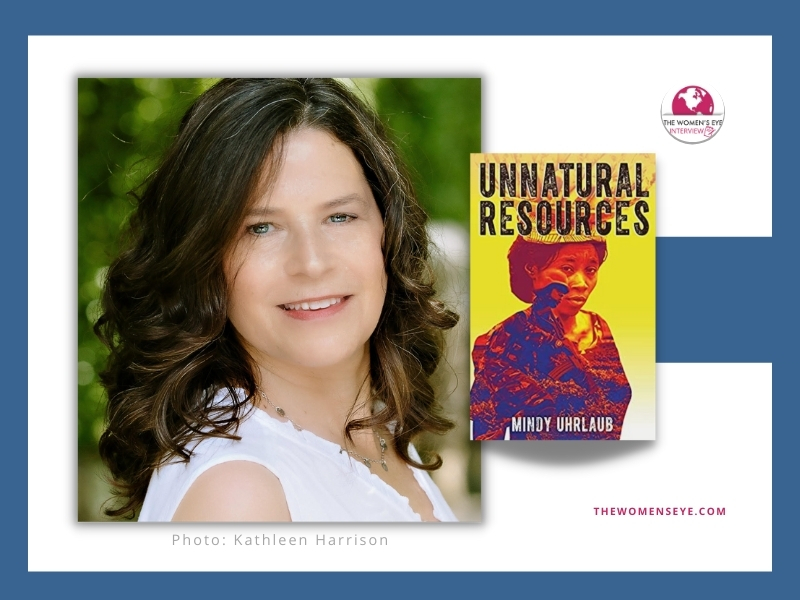
I am always intrigued with people who are activists and what motivates them. Author, filmmaker, musician, and mom Mindy Uhrlaub is one very intriguing activist. Mindy’s book Unnatural Resources explores the atrocities and tragedies happening in the Democratic Republic of the Congo.
“Doing it from my home in California was not the way to do it. If I was going to write a fiction book about people in Congo, I needed to know how they really looked when they were celebrating and mourning…you can write just the facts, but to let your reading breathe you need to have the atmosphere and so I went.”
Mindy Uhrlaub
Her book is fiction based on fact, centered on Therese, an abused young girl in Congo who ultimately shows she is strong and resilient with remarkable resources. What is unnatural for Mindy is the perception that women are victims and don’t fight back.
In addition to bringing awareness of the unfathomable conditions there, Mindy is also drawing attention to ALS. Mindy took a break to share her insights with TWE…
EYE: Your story, Unnatural Resources, is not shy about depicting violence and gut-wrenching atrocities women and girls face in Congo. Publisher’s Weekly said it was “fiction with a conscience.” Is that what you intended when writing it?
MINDY UHRLAUB: I really don’t know what I intended when I wrote it. I had been reading a lot of stories of rape and atrocity in Congo, and what was really missing from the narrative were stories of female heroes.
For me, the only way I was going to learn more about the Congo was to actually find those glimmers of hope, because it’s too gut wrenching to just hear about the tragedy there. I found that writing about a young female changemaker was actually therapeutic in my activist path.
EYE: Why did you decide to do a fiction book instead of non-fiction or maybe a documentary since you had made a film, Stalled?
MINDY: I didn’t want to write a memoir because it wasn’t a story about me. It was a story about strong, resilient Congolese women. It wasn’t non-fiction because I didn’t want to put anyone there at risk.
I believe the heroine in Unnatural Resources brings home the awareness and message of what I want people to know about.
EYE: What prompted you to go to Congo in the first place?
MINDY: I read King Leopold’s Ghost by Adam Hochschild, a history book about Belgium and the Belgian Congo under Leopold II. It read like a novel. And I loved the characters. I became instantly intrigued.
When it comes to writing, I don’t like research. I don’t like outlining. But I felt like this was calling me. I had made a donation to Human Rights Watch at the suggestion of my family who, by the way, are very interested in social justice and human rights.
I asked if Human Rights Watch could send me something about Congo. They sent me their report from the Congo. And I was sort of agog.
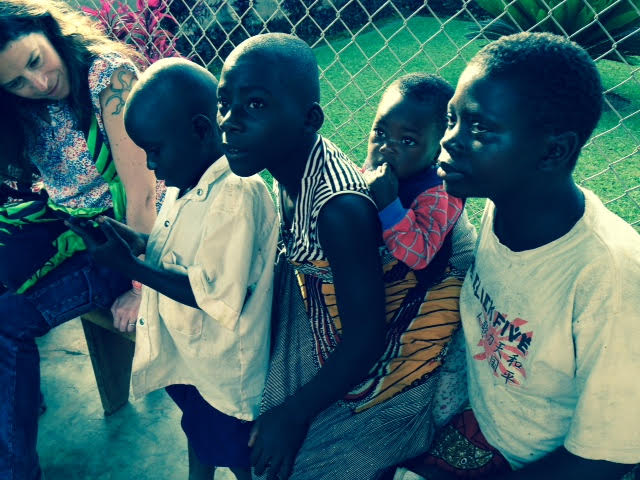
EYE: Why? What shocked you?
MINDY: It was almost exactly the same as King Leopold’s Ghost: slavery, torture, rape, kidnapping, militias, slave owners and white people who are paying these people to profit off of the backs of native people. It’s just horrendous what’s going on there.
I read these reports with tears streaming down my face and I thought, this is really pissing me off. I don’t like the fact that there are 500,000 girls being raped in Congo, like, what the hell? So I started going to Human Rights Watch events. I made friends with people there and other like-minded human rights issue groups.
EYE: Was there a particular person who influenced your decision to go to DRC?
MINDY: I found myself in a situation where I could meet Adam Hochschild, who had already become my hero. A few people and I had lunch with him and I instantly asked him, “Tell me what to do.”
And he basically said, “Oh, do you know you can go to Congo?” And I thought, Wait, a warzone?! You’ve got to be kidding me! I’m a nice little Jewish girl and I live in northern California and I’m, you know, from white privilege and I have two little tiny kids at home.
EYE: How did you figure out going there?
MINDY: My husband, who had been working at a travel adventure company, stayed home with the little kids and basically helped me get my visa to Congo. It’s tricky because you have to be invited by a non-profit. V-Day, founded by playwright-activist Eve Ensler, invited me for the opening of City of Joy in Bukavu, DRC.
It was on that same trip when Human Rights Watch hosted me and introduced me to local activists and survivors in DRC. At that time, Eve and I became friends. At the beginning of my book, I say my journey all starts with Adam and Eve.
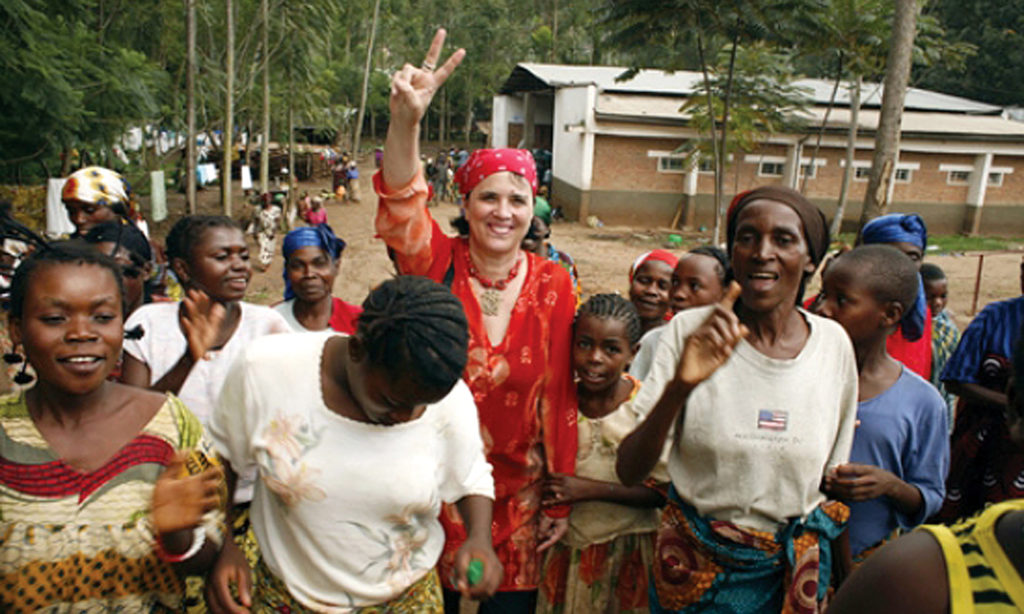
Eve Ensler in Congo/Photo: Paula Allen
Without Adam Hochschild, Eve Ensler and others, I never would have gone to Congo. I found myself becoming an activist, not by chance, but I felt like it was sort of my pleasure to become an activist.
EYE: Was the experience of going to the Congo the reason for writing more authentically for your book?
MINDY: Doing it from my home in California was not the way to do it. If I was going to write a fiction book about people in Congo, I needed to know how they really looked when they were celebrating and mourning. I needed to smell the cook fires in Goma, DRC.
I needed to know what the air felt like, what it felt like to be rained on in sub-Saharan Africa and the way that the mud feels in between your toes.
And to me, that’s where the real sort of literature comes in when you’re writing. You can write just the facts, but to let your reading breathe you need to have the atmosphere and so I went.
EYE: Did that experience change you personally as well?
MINDY: When I came back, I felt very changed; I felt like I had been home and that I was returning someplace where I actually didn’t belong. It was a very strange feeling to feel like I was among my people when I was actually in Congo and then come home and feel a little bit off kilter, like a square peg in a round hole.
I would stand there on the playground with my kids and watch them play and I just felt this tremendous sense of guilt and remorse. I had been to many third world countries before. But I hadn’t seen the kinds of things I saw in Congo. And it was in my veins at that point.
The writing just took on a different tone at that point, and the rest is history. I went back a couple years later. I feel that umbilical cord still connects me to my friends.
EYE: What did you find most shocking when you went there?
MINDY: The resilience. They have endured suffering that I thought was unimaginable, but they still go to church, have hope, live their lives and they’re able to push through some of this stuff. And it doesn’t matter how much damage they sustained.
Generally speaking, the women that I met there were joyful and had gratitude and were hopeful. You know, when somebody has been tortured and raped and they grab your hand, they say you’re going to cry for us, go home and you’re going to forget us. Oh, there was absolutely no way I was going to do that.
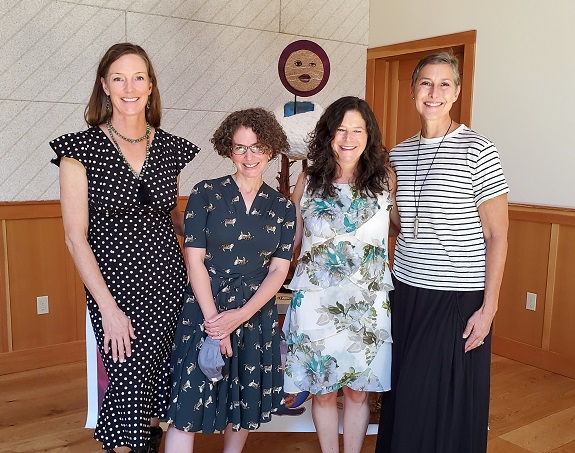
on Women’s Equality Day 2021 at a California gathering she organized
EYE: Meanwhile, you have a very personal situation dealing with ALS that you recently discovered. Your mom and her father died from it. And you were told you carry that gene mutation. How have you not panicked or just felt plain scared in your decision that you’re going to go for a cure, not just a treatment?
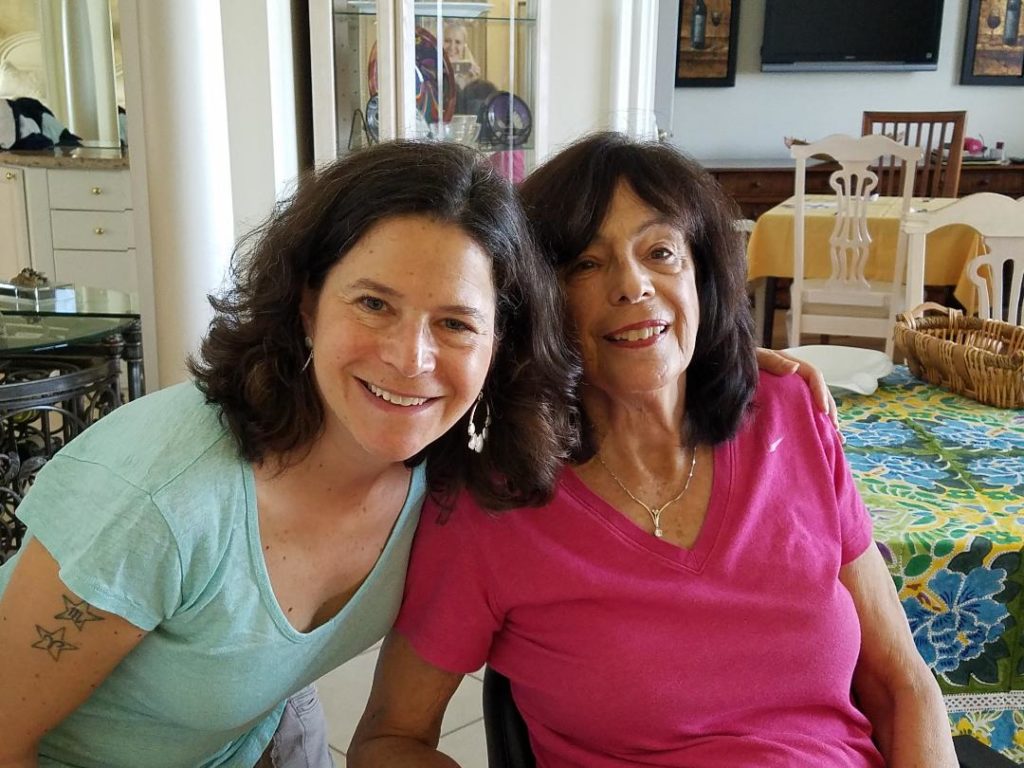
MINDY: It doesn’t mean I’m not scared, but activism empowers you against the fear that you that you have for just about anything. All I have to do is look into the beautiful eyes of my children and realize that it’s not just for me that I want to fight this monster. It’s for them.
I don’t want them to have to see me go that way. I could have passed this gene on to them. I don’t want them to go through this or their children to have to see them shrivel up and die. You know, this is my life and I’ve seen enough people have to fight for their lives. And it’s just my turn.
I feel very honored to be able to be in this fight. I do feel ultimately that although my mom might have passed this gene on to me, it’s a gift.
It’s not a burden because she’s given me the opportunity to fight for something that’s really important.
EYE: Your activism with ALS includes participating in trials, educating yourself with top experts and now writing a memoir to create more awareness. What can people do who have ALS and those who don’t have ALS?
MINDY: Obviously donations are important because it’s a rare disease. It’s not very well funded. Also, I urge anybody who has ALS in their family, anyone, whether they think it’s familial ALS or not, to get genetically tested for it. Knowledge is power. Getting the word out is critically important.
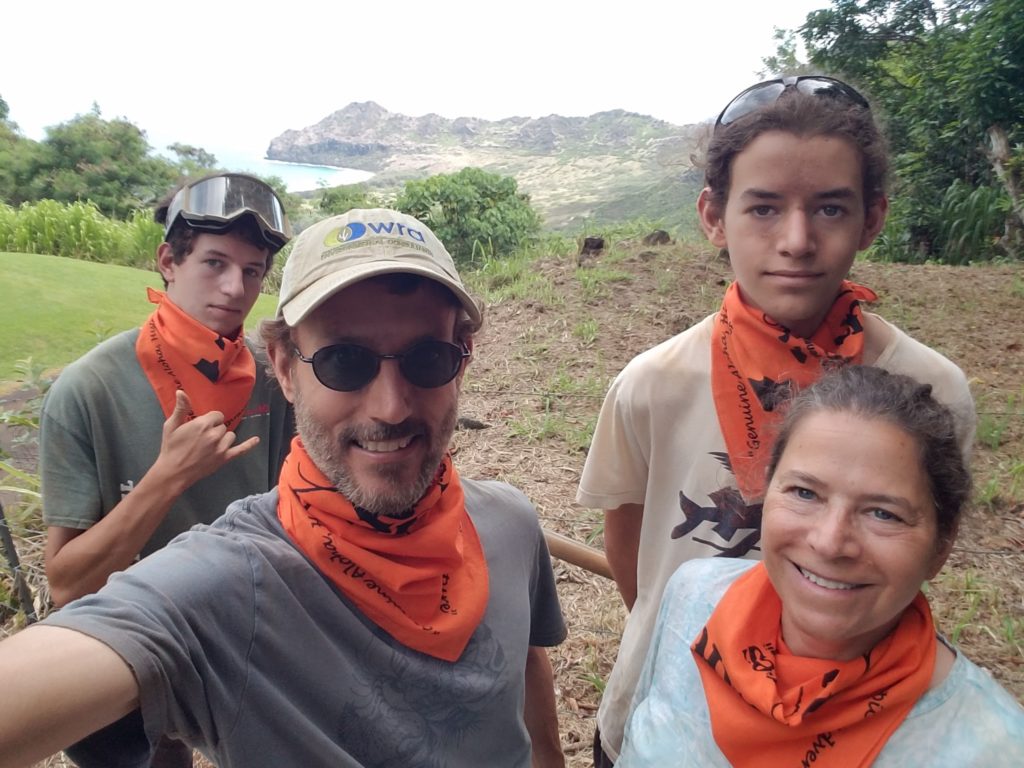
EYE: Where does your strength and never quit attitude come from?
MINDY: When I think about the women in the Congo and the way they persevere, it gives me strength. Watching my mom fight against this disease gave me much more strength to fight it because I feel like she is always with me. Although she did not necessarily feel like there was going to be a cure, she pretty much fought to the end.
And, my hand to God, I’m not going to develop ALS. I will go down swinging no matter how I go down. This disease has not heard the last from me.
EYE: What advice do you have for anyone who has a feeling of ‘wanting to do something’ or being an activist?
MINDY: Just get going on something, whatever it is! It doesn’t have to be big; there are small acts of activism all the time. You don’t need to have money to do it right. Go in and volunteer at your local homeless shelter for a day. If there’s something that’s really bothering you, go and march. And go and vote!
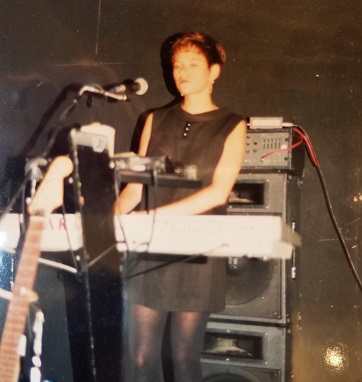
Courtesy a band fan
EYE: On a different note, you have had a successful run as a keyboardist for the indie rock band, 40th Day. Is there anything in that experience that has played into your activism?
MINDY: The greatest thing that I took away was that creativity is a group effort. 40th Day was and is a democracy. We all wrote the music. Nobody came to the band with a song that was already written.
We would all get in the room. We’d all start practicing. Everyone would jump in. And then there would be a song written. The idea is that we’re all in this thing together and that we have to bang out something important together.
EYE: What do your future plans now include besides promoting Unnatural Resources?
MINDY: My immediate plan is teaching a workshop at the virtual Pacific Northwest Writers Conference. It’s about tenacity in writing. More broadly, I’m going to be working on my ALS memoir. ANNND, I want to find a cure for ALS.
EYE: Thank you for your insights and time, Mindy. Much success to you in your future endeavors, especially in the ALS arena! For TWE readers, check out ways you might get involved at the end of Mindy’s book!
Lead Photo: Kathleen Harrison
For more about Mindy Uhrlaub check out:
- Website: mindyuhrlaub.com
- Twitter: @MindyUhrlaub
- Instagram: @mindywrites1
- Facebook: mindyuhrlaub
Some links in this post may be “affiliate links,” meaning TWE receives a small commission (at no extra cost to you) if you use that link to make a purchase.
You might also enjoy our article on Eve Ensler by Laurie McAndish King:
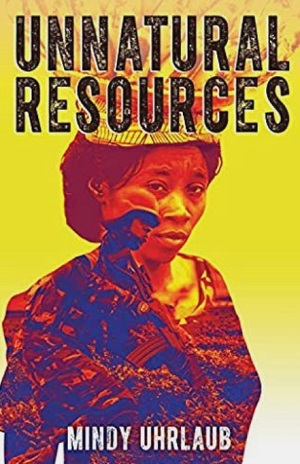
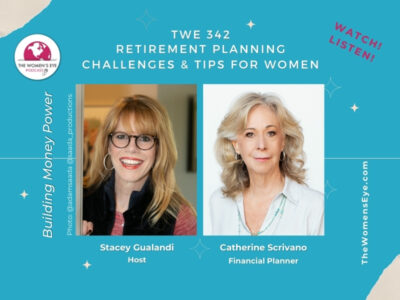


Leave a Reply